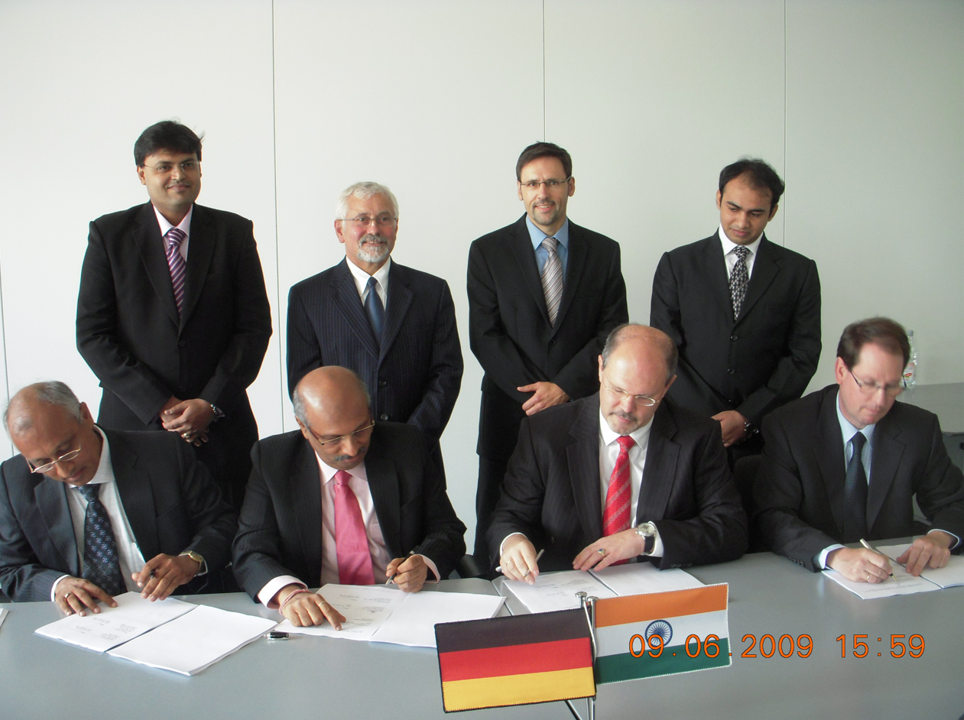The success story of Freudenberg GALA Household Products
India in the 1950s: Freed from British colonial rule, the still young country faced enormous economic and social challenges. Northwest India, in particular, was heavily dominated by agriculture and industrially underdeveloped. To escape the poverty of his northern Indian homeland, Laljibhai Gala set out at that time for the megacity of Mumbai with a simple business idea. From there, the young man began trading in grass from the north-east of India and using it to make traditional Indian brooms.
Family members with various backgrounds as a success factor
What initially started as a small family business was to develop into a serious player in the Indian cleaning industry over the next 30 years. After Gala's sons also joined the company in the 1970s and 1980s, the small team consistently focused on growth. Even then, the focus was on the individual inclinations and strengths of each family member. As is customary in family businesses in India, the offspring also joined Gala after their training, and each played to their individual strengths. The belief was, and still is, that diversity in backgrounds is complementary and benefits the company. "While I took care of sales and marketing, as a technically oriented person, my younger brother was keenly interested in technical trends and travelled all over the world to see trends and possibilities in industrial manufacturing," recalls Chandrakant Gala, son of the company founder. "On my elder brother’s inspiration, I not only bought the first machines, but visited countless trade fairs, made contacts in Dubai and China and returned home each time with a number of product examples." So, the idea grew in the team to produce the first smaller brushes from plastic. Initially, however, only as private labels for export to Asia and the Middle East. "Even then, we attached importance to high quality – both in the selection of our machines and in our products," Gala continues. The decision to focus on machine-made plastic brushes, and thus on a product that until then had had little competition, marked the beginning of Gala's real path to success. With a sense of proportion, Chandrakant and his brother began to carefully expand the business and invest in personnel and production in line with the increasing demand.
Start of strategic product development and innovation
With Chandrakant’s nephew Jatin Gala joining the company in 1996, the family began to focus more on the Indian market and to target customers' needs more closely. Within just two years, many new products were created and sold for the first time under the Gala brand name. "Our reputation as a quality-conscious brand with long-lasting products grew and we started continuously adapting cleaning products for the Indian market and expanding our innovation capabilities in the early 2000s," says Jatin. The business got a further boost when the team started selling its products on its own instead of through distributors: Jatin: "We started selling our products to markets ourselves. This allowed us to convince retailers much more than distributors could with our well-coordinated and hands-on sales staff. Also, consistent marketing initiatives helped Gala to be a strong trade brand."
Mutual learning
By 2009, Gala had grown in this way to become the number two among Indian cleaning manufacturers. And with its values, it was predestined for a joint venture with Freudenberg. Jatin: "When we first heard about the Freudenberg Guiding Principles, which were very similar to our values, we knew we had found the right strategic partner with whom we wanted to grow further together and realize our vision. Our entrepreneurial dream got wings with the trusted partner in FHCS. The company now has an annual turnover of around 50 million euros, which it aims to double before the end of the decade.
Our goal is to reach the growing Indian middle class, which promises financial success but also means an enormous logistical challenge.
Henrik Sternberg, Regional Vice President Asia Pacific Consumer at FHCS
"Our goal is to reach the growing Indian middle class, which promises financial success but also means an enormous logistical challenge," explains Henrik Sternberg, Regional Vice President Asia Pacific Consumer at FHCS. Innovative products developed especially for Indian consumers, such as the No Dust Broom, should help. The business also benefits from innovations from Weinheim: in cooperation between product and marketing experts from India and Weinheim, a version of the spin mop system TURBO – a worldwide bestseller – was developed, which is specially designed to meet the requirements of Indian consumers. Today, the Gala TURBO is winning the hearts of Indian consumers. In addition to setting up a strategic innovation process, other challenges that Gala is now mastering skillfully thanks to Freudenberg's know-how include topics such as financial controlling, occupational health and safety, manufacturing excellence or LEAN processes. In return, FHCS benefits from the agility of its Indian colleagues. "The Indian team is not afraid to tackle things and maybe fail at first but quickly adjust and find a way," Sternberg continues. "There is a level of joy and fun in the joint work here that we could further benefit from in other areas of the business."
Country Profile India:
- Seventh largest country in the world (3.29 million km2)
- With 1.4 billion people, the second most populous country on earth
- Official languages: Hindi and English; 1600 regional languages and dialects
- Emerging economy, especially in telecommunications, pharmaceuticals, automobiles; exporter of software
- History goes back more than 5000 years
- Culture is rich in traditions, festivals, dance and handicraft
- Hinduism is the most important religion, great religious diversity

